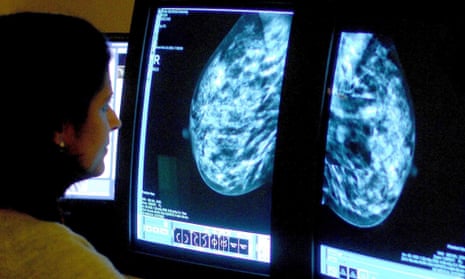A simple blood test may in future provide breast cancer patients with an early warning of the disease returning after chemotherapy and surgery.
The test uncovers small numbers of residual tumour cells that have evaded treatment by detecting cancer DNA in the blood stream.
It is so sensitive that relapses can be predicted several months before new tumours show up on hospital scans. Scientists hope the test will also make it possible to identify genetic mutations likely to prove lethal to some patients, so therapy can be tailored accordingly.
Dr Nicholas Turner, from the Institute of Cancer Research in London, said: “We have shown how a simple blood test has the potential to accurately predict which patients will relapse from breast cancer, much earlier than we can currently.
“We also used blood tests to build a picture of how the cancer was evolving over time, and this information could be invaluable to help doctors select the correct drugs to treat the cancer.
“Ours is the first study to show that these blood tests could be used to predict relapse. It will be some years before the test could potentially be available in hospitals, but we hope to bring this date closer by conducting much larger clinical trials starting next year.”
The team, whose findings are reported in the journal Science Translational Medicine, took tumour and blood samples from 55 women who had been successfully treated for early-stage breast cancer.
Blood tests carried out at six monthly intervals showed very accurately which patients were likely to suffer a relapse. Women who tested positive for circulating tumour DNA were 12 times more at risk of cancer recurrence than those who tested negative. The return of their disease could be predicted an average of 7.9 months before any visible signs emerged.
The research showed how breast cancer mutations build up as leftover tumour cells grow and spread.
Prof Paul Workman, chief executive of The Institute of Cancer Research, said: “We are moving into an era of personalised medicine for cancer patients. This test could help us stay a step ahead of cancer by monitoring the way it is changing and picking treatments that exploit the weakness of the particular tumour.
“It is really fantastic that we can get such a comprehensive insight about what is going on in the cancer all over the body, without the need for invasive biopsies.
“Studies like this also give us a better understanding of how cancer changes to evade treatments – knowledge we can use when we are designing the new cancer drugs of the future.”
